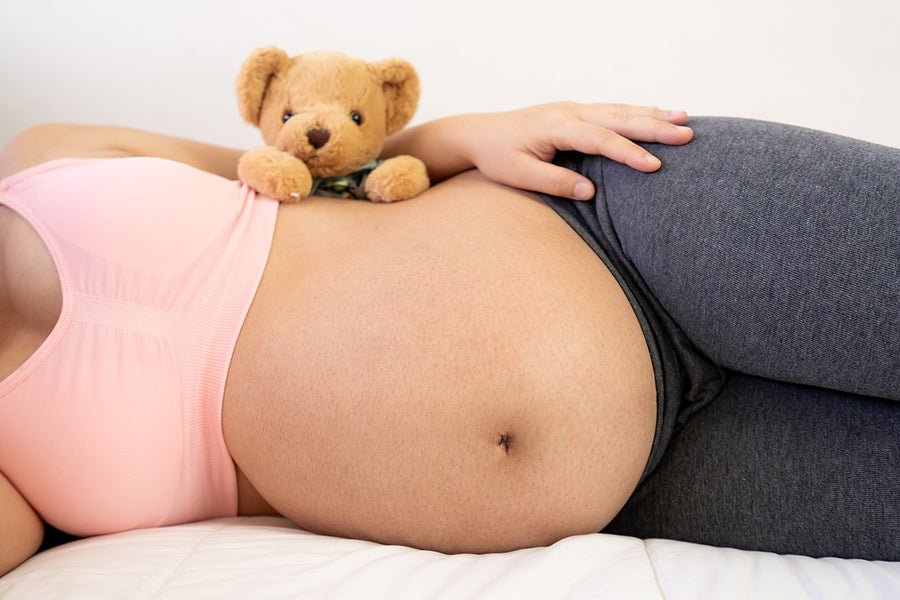Today marks the start of a significant policy change that will extend lifesaving health coverage to hundreds of thousands of pregnant and postpartum people each year: the American Rescue Plan’s option to extend postpartum coverage from 60 days to one year after the end of pregnancy.
CMS announced today that Louisiana was the first state to be approved for the extended coverage period, and the agency said it is working closely with nine additional states to provide federal matching funds for an additional 10 months of coverage for pregnant people in states that allocated funds to take up the option.
There are many more states likely to be approved for extended postpartum coverage in the coming months. So far, there have been 19 states that have allocated funds to opt into the extension, and debates are ongoing in several state legislatures, including Alabama, Mississippi and Missouri, where the extension has bipartisan support. Five additional states have already received CMS approval to extend coverage to at least some postpartum people for some services using section 1115 waiver authority. To view your state’s postpartum eligibility period, visit our Interactive Kids’ Health Care Report Card here.
In Friday’s announcement, Louisiana received approvals for Medicaid and CHIP state plan amendments to extend postpartum coverage to 12 months for pregnant adults covered in Medicaid and for children under age 19 who become pregnant while enrolled in the state’s separate CHIP program. In both amendments, Louisiana affirmed (as all states must) that they will provide full-benefit, continuous eligibility to pregnant people who were eligible and enrolled while pregnant–including during periods of retroactive eligibility–through the last day of their 12-month postpartum period.
This means that people will remain eligible for coverage even if they have a change in circumstances, such as an income fluctuation or household size change, during the postpartum period, and they will not need to renew their coverage until their coverage period ends. The extended coverage is available from the approval date through March 31, 2027 as specified in the American Rescue Plan, or could change if there’s a future change in the law.
It’s important to note that even as a large number of states take up the postpartum extension option, there are still many states where policymakers have not taken action. When the public health emergency ends, postpartum people in these states will still lose coverage just 60 days after the end of pregnancy, leaving them without coverage at a critical time for their own health and the health of their children. This will further exacerbate health disparities across state lines.
The need for action is clear: the latest data from the CDC shows that maternal death rates increased in 2020 for the second year in a row, and Black women continue to have a mortality rate twice as high as the national average. Medicaid is the source of coverage for about two thirds of births among Black women, so policy changes in Medicaid are especially impactful for the women most at risk of mortality and other serious, life-altering complications.
Women of color are also more likely than their White peers to experience a coverage disruption during pregnancy, which can cut off their access to ongoing prenatal and postpartum care, access to medications or other support they need to manage their own health, which will support their health of their infant. About one third of pregnancy-related deaths occur between one week and one year after the end of the pregnancy, and as state maternal mortality review committees in dozens of states have shown, these deaths are often preventable. This suggests that improving access to care during this critical period could be lifesaving for new mothers.
The pandemic has also illustrated the critical role that Medicaid plays in filling coverage gaps for postpartum people. As readers of the SayAhhh! Blog know, the Families First Coronavirus Response Act, passed at the start of COVID-19 pandemic, included a “continuous coverage” provision that linked receipt of enhanced federal Medicaid and CHIP funding to a prohibition on involuntary disenrollment from Medicaid. The pregnancy eligibility category saw the greatest percentage increase of any group from February 2020 to August 2021– adding nearly 600,000 beneficiaries–signaling that the continuous enrollment protection is filling a gap for postpartum people.
The new Medicaid state option is a critical achievement for maternal health and we applaud the effort of state and federal policymakers to create this important state plan option and recognize the years of work that led to this critical day for so many new mothers. There is more work to do, but today we are hopeful that this coverage extension will help build a stronger foundation for young families to get a healthy start.


